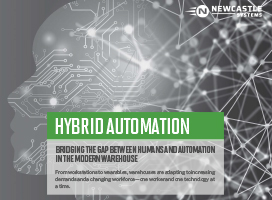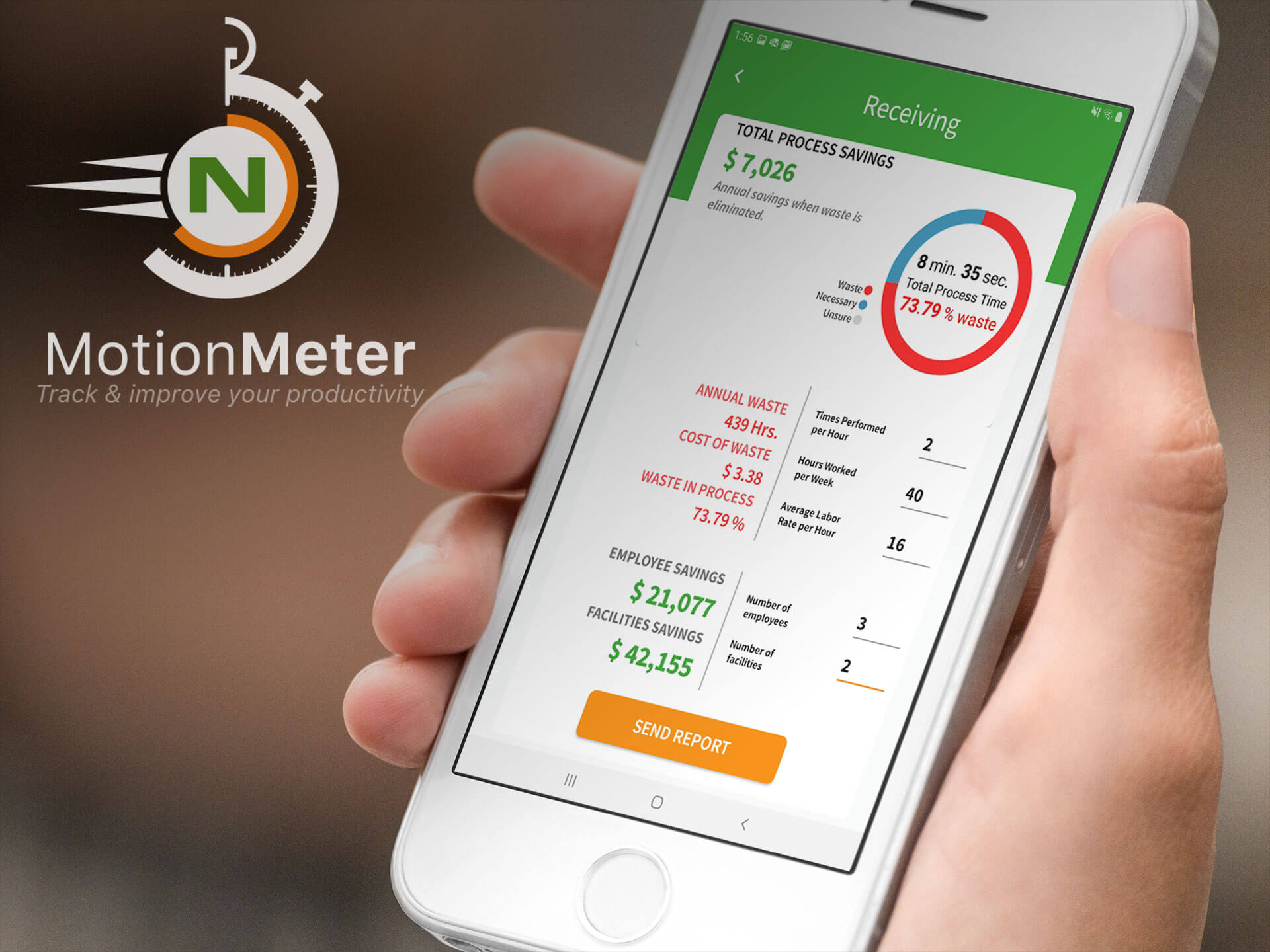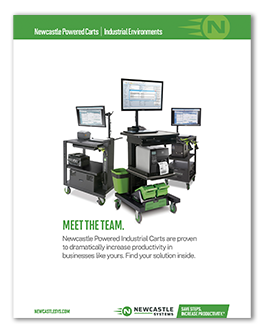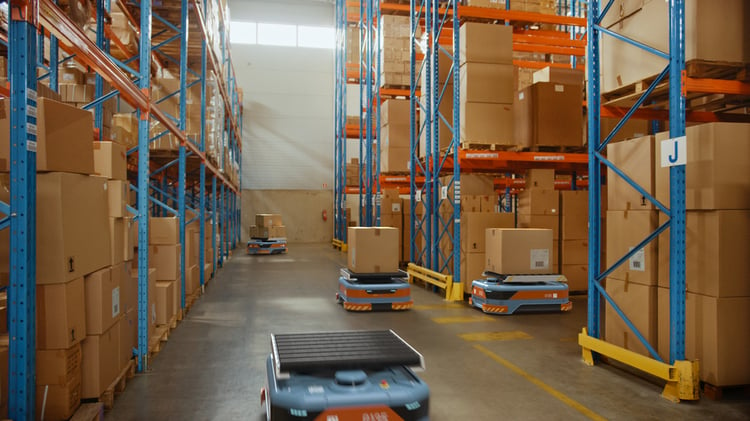
Artificial intelligence is changing the game for warehouses and fulfillment centers, but nowhere is this more true than for SMBs and smaller warehouses. An increasing number of AI and automation tools are available on mobile devices, bringing warehouse automation to organizations that might not have had access before. See how these smaller companies can elevate and enhance their operations to keep current with bigger brands.
Facts About Artificial Intelligence
Few businesses today aren’t talking about how they can leverage technology and some type of artificial intelligence (AI) innovation to deliver a better customer experience and gain a competitive edge. According to Statista, global corporate investment in AI reached nearly $190 billion in 2022.
However, it’s the return on AI investment that gets the attention of business leaders. According to McKinsey’s research on AI and productivity, this technology has the potential to generate the equivalent of up to $4.4 trillion in global profits annually.
But are those profits only available to the largest corporations and businesses with pockets deep enough to afford the technology? Not necessarily, since AI solutions have become much more affordable and accessible for even the smallest business.
The Logistics Market Is Already Using AI
AI is already widely used throughout the logistics industry. Amazon was one of the first companies to introduce AI-based robotics to perform manual tasks throughout the warehouse. The company, as well as other major eCommerce and logistics providers, has expanded its use of these solutions into other areas. Some of these include:
Automation and Robotics in Warehousing
AI-powered automation technology and robotics, such as robotic pickers and autonomous mobile robots (AMRs), are revolutionizing warehouse operations. These “smart” systems can perform various tasks and navigate through warehouse aisles with ease.
Real-Time Asset Tracking and Warehouse Visibility
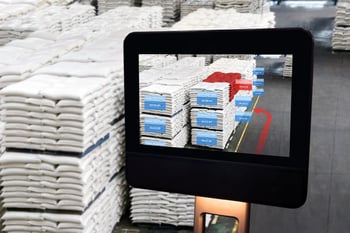 AI-based sensor technology and tracking can enable real-time visibility in your warehouse’s operations. By leveraging RFID tags and IoT devices, warehouses can track inventory, monitor valuable assets, and get valuable data about potential bottlenecks.
AI-based sensor technology and tracking can enable real-time visibility in your warehouse’s operations. By leveraging RFID tags and IoT devices, warehouses can track inventory, monitor valuable assets, and get valuable data about potential bottlenecks.
Enhanced Order Fulfillment and Logistics
AI-powered order fulfillment systems can optimize your processes, such as choosing the best order-picking routes and frequencies. This allows warehouses to reduce labor costs while improving accuracy.
Predictive Analytics for Layouts and Maintenance
AI can analyze your warehouse to give you the most optimal layouts and order fulfillment processes. It can also monitor your operations and machinery to predict when something might go wrong, such as an equipment failure, so you can take preventative action and avoid downtime.
The Value of AI and Automated Warehousing for Any Size Business
Despite the hype surrounding warehouse automation and AI, you might wonder whether your warehouse needs these solutions or can even afford them. This is a valid question that you’ll need to consider carefully.
The truth is there are always costs involved in upgrading your systems. In addition to the cost of the technology, you’ll need to consider factors like training and integration with existing systems. However, even the smallest warehouses and distribution centers can benefit from leveraging various AI solutions and warehouse automation. The return on investment is simply tough to ignore. Here is a breakdown of the value AI and warehouse automation can have for your business:
Improved Productivity
AI can improve the overall productivity of warehouses of any shape or size. Whether or not you already have automation solutions, AI can take these strategies to a new level with machine learning. This allows the system to analyze processes in real time and figure out ways to make them more efficient for your business.
Simpler Inventory Management
Many warehouses spend a significant amount of resources managing inventory, which can be notoriously inefficient when done manually. AI and warehouse automation solutions like RFID tags, warehouse management systems, wearables, and mobile powered carts can streamline this process and reduce human error.
Better Communication
AI solutions in the warehouse can improve your overall internal and external communications. Specifically, by using AI in combination with IoT solutions, your warehouse can send and receive data about product and transporter locations in real time.
Higher Quality Data
One way many small warehouses struggle is that they aren’t using relevant data to run their operations and make decisions. When you implement AI solutions, you get access to powerful algorithms that will seamlessly analyze massive quantities of data to optimize your work tasks.
Safer Workplace
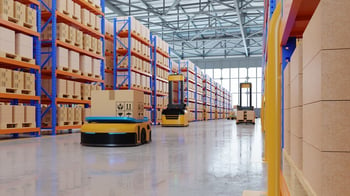 The warehouse industry is known as a dangerous place to work due to heavy machinery, high shelving, and strenuous work tasks. Fortunately, AI solutions can help warehouses automate some repetitive tasks and give employers the information they need to make these workplaces safer.
The warehouse industry is known as a dangerous place to work due to heavy machinery, high shelving, and strenuous work tasks. Fortunately, AI solutions can help warehouses automate some repetitive tasks and give employers the information they need to make these workplaces safer.
Lower Costs
By freeing up human labor and making warehouse functions more efficient, AI systems can help small warehouses reduce costly errors, lower payroll costs, and do more with less. These cost savings allow businesses to improve their overall results and foster growth.
More Effective Planning
Finally, AI can ensure your warehouse business can stand up to its competitors by helping predict adverse events, such as market slowdowns, supply chain bottlenecks, and even severe weather events. With advance warning, your business can minimize downtime and improve its overall results.
The adoption of AI among businesses of all shapes and sizes has been steadily increasing. With greater competition among AI innovators and more advancements in technology, the cost of this transformative technology is making it more accessible for smaller distributors. This can help these small to mid-sized warehouses better compete with larger counterparts and deliver a better customer experience.


